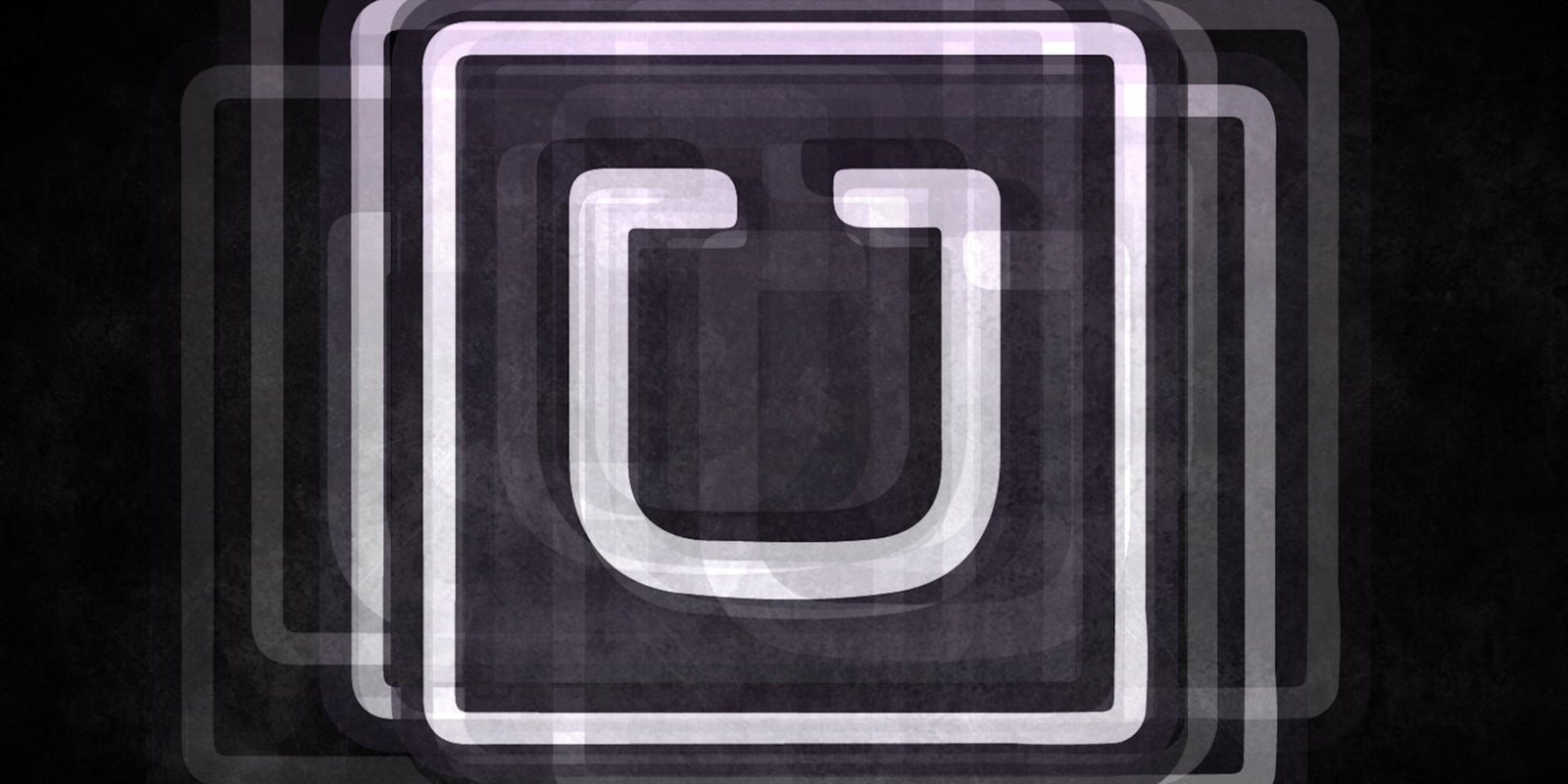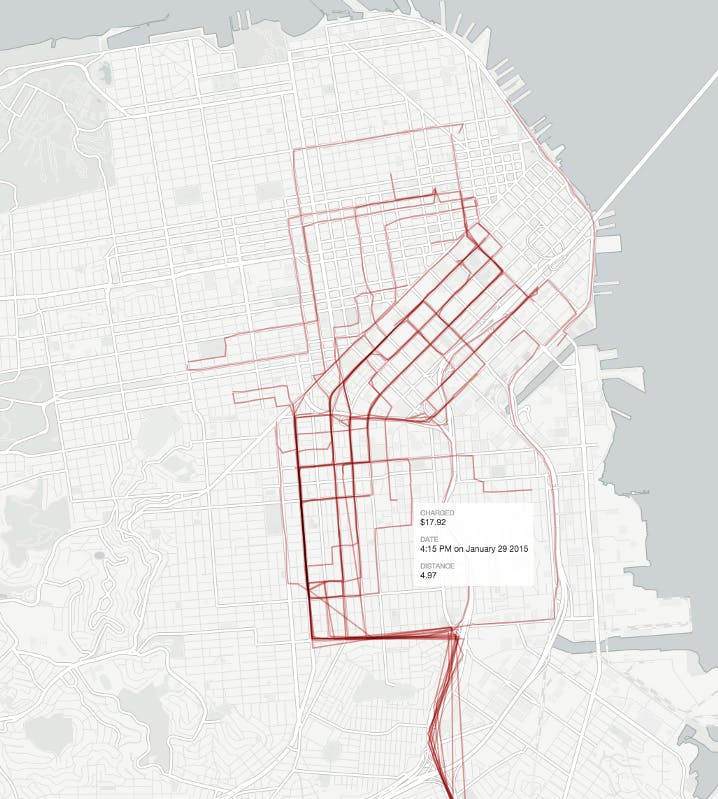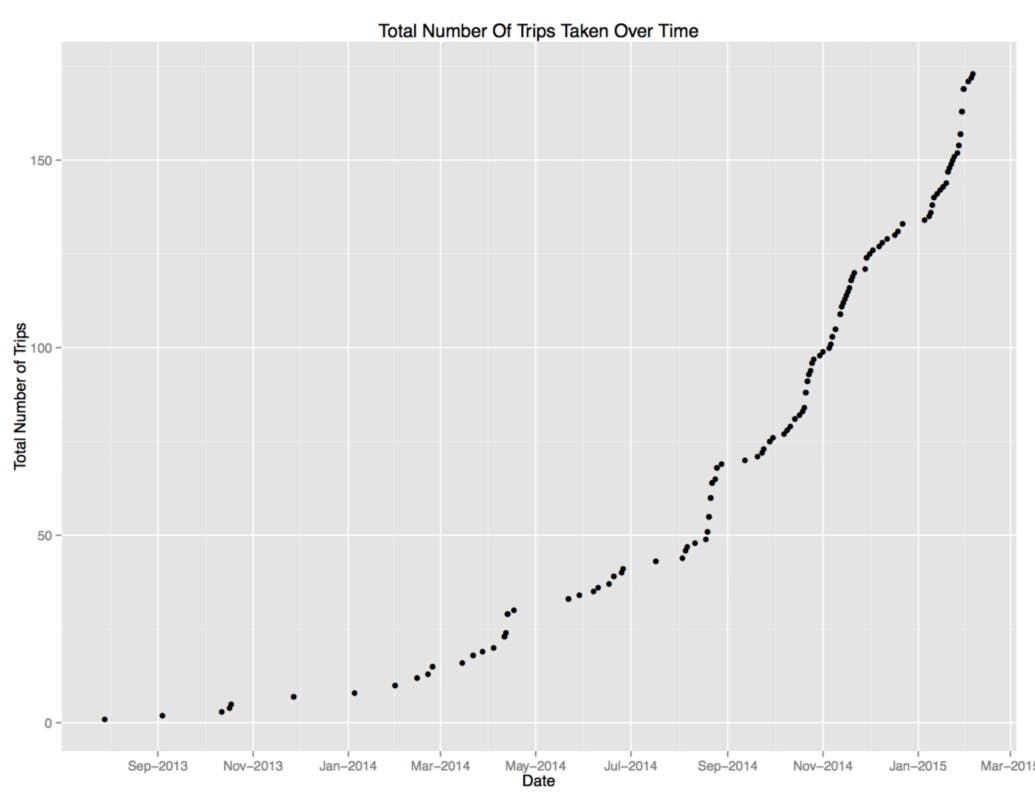BY MILES GRIMSHAW
Uber has received a lot of negative press lately for invasions of user privacy. Employees supposedly had access to a “God View” of every user (allowing near-unlimited access to the real-time locations and personal details of its user base), and considered exposing the trip histories of unfriendly journalists. The Uber Android app has been shown to collect all sorts of unnecessary data. Thankfully, Congress has spoken out, and Uber is putting stricter data controls in place.
Data control is critically important, but personal data freedom is also important and often overlooked. I have written before how, as more of our daily lives are mediated by digital products, we create a rich personal history. This is especially true of social media sites like Facebook and Twitter, but also true of more “analog” products like NYC Citibike. As creators of this personal history, we should have open access to and creative freedoms with our own data. Tim Berners-Lee recently raised this issue, saying that “the data we create about ourselves should be owned by each of us, not by the large companies that harvest it.”
Facebook, Twitter, and Google now provide personal data exports. Uber, along with many other services, should consider doing the same as part of new data policies.
We should consider the equivalent of a Creative Commons License for our personal data that every service would strive to adopt.
You are free to:
Download: Free access to your raw data in standard file formats
Share: Copy and redistribute the data in any medium or format
Adapt: Remix, transform, and build upon the data … Under the following terms:
Attribution: You must provide a sign-up link to the application
Data freedom shouldn’t rely on the independent motivation and hard work of individuals like Josh Hunt and Chris Wong, who wrote code to scrape Uber.
With my raw Uber data, I can create visualizations of my entire travel history (click for a dynamic map with details on each trip).
With my raw data, it is also then possible to analyze my data as I want (e.g., total trips over time, and total spend over time).
And I can also query the information for information I want:
- Total Trips: 173 (nine cancels)
- Total Distance: 883.35 miles (average trip 5.2 miles)
- Total Time: 47 hours, 45 minutes, and 43 seconds (average trip: 16 minutes and 51 seconds)
As Congress works with companies like Facebook, Twitter, and Uber to shape user privacy rights, we should also push them to give us unfiltered access to and creative freedom with our own data. If Uber employees can run a SQL query on my personal data, I should be able to as well.
This piece was originally featured on Medium, and reposted with permission.
Illustration by Max Fleishman




